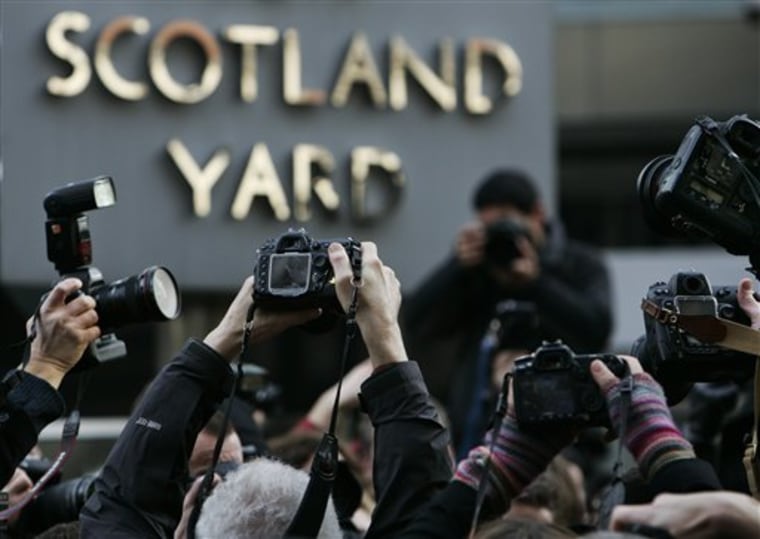Tourists better think twice now before snapping pictures of the iconic British bobby.
A new British anti-terrorism law went into effect Monday that could effectively bar photographers from taking pictures of police or military personnel — a move that prompted some 200 photographers to protest outside of Scotland Yard's headquarters.
Although the measure aims to prevent terrorists from taking reconnaissance shots, photographers say it could be misused at a whim to stop any pictures from being taken — especially images involving police abuse and demonstrations.
"This law makes it much more difficult to photograph any kind of public demonstration or riot," said Marc Vallee, a protester and photographer. "The police are already suspicious of photographers and this just gives them more ammunition to stop us at our work."
Britain has come under fire in recent years for several measures that civil liberties groups say erode people's freedoms. In 2005, another law prohibited demonstrations around Parliament.
The new act makes it a crime to "elicit, publish or communicate information" about British police or military personnel.
Officials defend policy
Britain's Home Office said in a statement that the law is designed to protect police officers on counterterrorism operations. In many cases, officers could allow photographers to keep taking pictures. In other cases, they could ask them to stop or threaten them with arrest.
It is legal to take photographs in any public space, but photographers complain they have been harassed by police while taking photographs near airports, government buildings or train tracks under the Terrorism Act 2000, which gives police the right to stop, search and question anyone taking photographs.
"We've seen more and more limits being placed in this country on photographers and this new legislation will make things even more difficult for them," said Padraig Reidy of Index on Censorship, a group that monitors civil liberties.
Freelance photographer Jess Hurd said she was stopped by police when photographing a December wedding of Irish Travelers. Part of the story was about how the Travelers — who often roam from site to site — face harassment from police.
"The police stopped me and ordered me to stop filming them, saying I could be carrying out hostile reconnaissance," Hurd said. "I had no idea what they were talking about until I realized we were vaguely in the vicinity of City Airport."
Photographers who refuse to stop taking pictures after a warning face arrest, up to 10 years in prison or unspecified fines.
